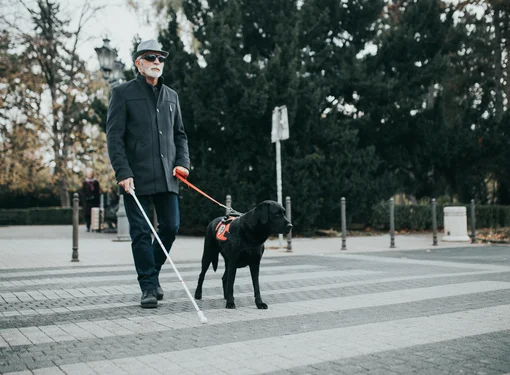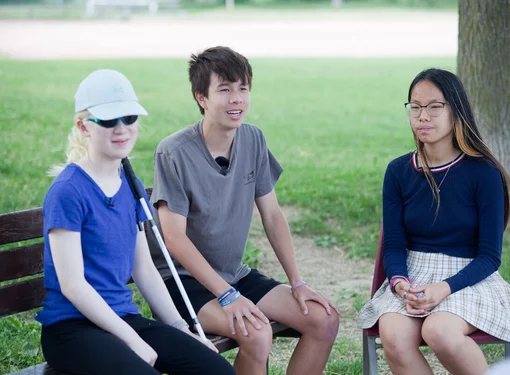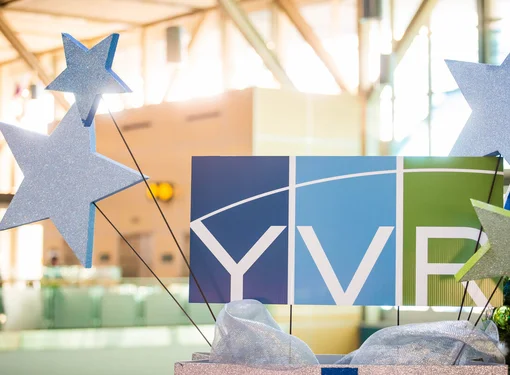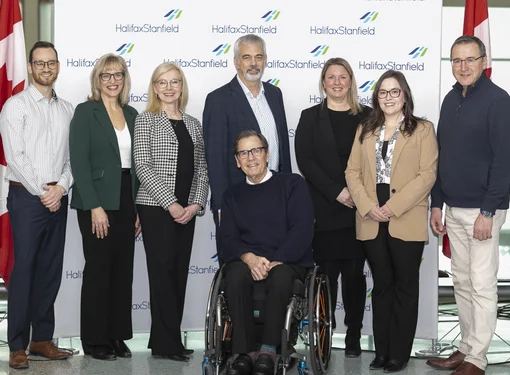Inclusive language: Why does it matter?
The way we refer to one another is intrinsically connected to the kind of society we want to live in. Do we want to live in a place that celebrates diversity, or one that marginalizes those who are different? Critics may argue that inclusive language is just one side of political correctness, but this simply isn’t true. Instead, it’s about being respectful and not relying on stereotypes. Let’s talk about how to speak and write about people with disabilities in a way that is truly inclusive.
People, not labels
We’re all people first. But as we are often pigeon-holed by our physical characteristics, this fact gets forgotten. And this tendency is experienced ten-fold by anyone who has a disability. Terms like “crippled” or “invalid” are inappropriate; instead, “Susan has cerebral palsy” is a better use of language. Yes, someone may have a disability, but they also have university degrees, a family, a dog, a love of classical music, etc. Their disability should not be the sole characteristic that defines them. It’s also good to be aware that some people don’t have a problem with the qualifier, “disabled”, so your best bet is to just ask how they prefer to talk about their disability.
Reinforcing the positive
People with disabilities have lives filled with good and bad moments just like everyone else, and aren’t in a constant state of pain or unhappiness. For example, a person with muscular dystrophy is living with the disease. It’s wrong to assume they are in constant pain, or “suffering from muscular dystrophy.” They have a condition that affects them physically, but that doesn’t necessarily stop them from living their life (or even achieving dreams like competing in the upcoming Paralympics).
A person in a wheelchair is also not “confined” to their chair. A wheelchair is a mobility device that helps an individual navigate the world and get from point A to point B, and it shouldn’t be perceived as restrictive in any way. In fact, the real restriction lies in a world that does not accommodate disability naturally with Universal Design.
Steering clear of euphemisms
What is a euphemism? According to the Oxford English Dictionary, a euphemism is “a mild or indirect word or expression substituted for one considered to be too harsh or blunt when referring to something unpleasant or embarrassing.” Our image or perception of disabilities should not be that they are unpleasant or embarrassing, yet, some euphemisms still creep into our language.
The terms, “physically challenged” and “special” are problematic. As mentioned earlier, restrictions and challenges often come from a world that is not accessible. For example, if you are in a wheelchair and you want to get from the first floor to the third floor in an office building, it will only be a challenging experience if the building does not have an elevator. Another problem with the term is that we are all physically challenged at different times in our lives. The Grouse Grind is physically challenging for many people. Trying to do a headstand is challenging for others. “Physically challenged” applies to everyone, not just people with disabilities.
“Special” when used in the context of people with disabilities can be condescending. It also reinforces the idea that someone with a disability is different or not part of our society. When we use this term, we are again marginalizing those who should considered part of our diverse country.
Building a culture of acceptance
Not using inclusive language most times isn’t necessarily malicious. Instead, people may just not know how to speak inclusively. Unfortunately, speaking in a way that marginalizes people, regardless of the motivation, can have negative consequences. People with disabilities still have to fight for equal access to employment opportunities, positive representation in the media, and much more.
We often ask, “What can we do to help?” A great first step is trying to communicate in a way that is non-discriminatory. By choosing to speak and write inclusively, we are helping to build a culture of acceptance where there is a place for everyone.






